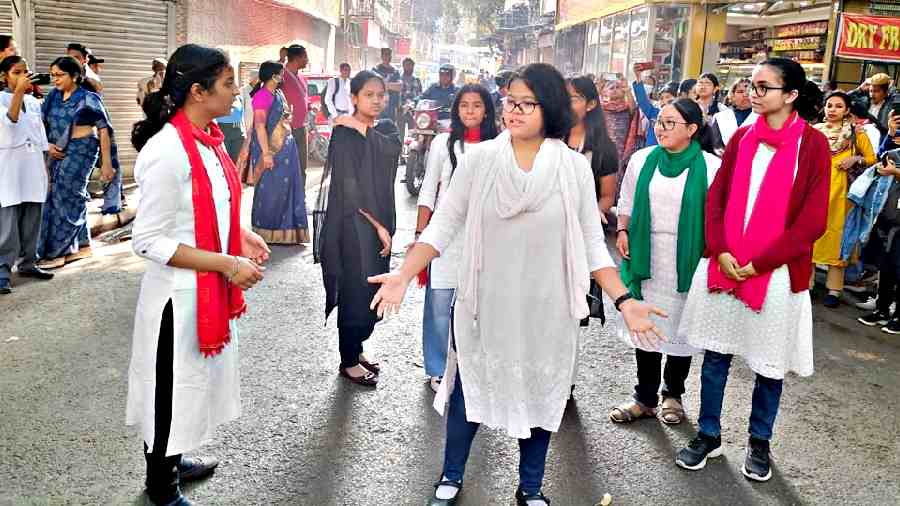Domestic child labour is rampant in urban setups, in homes and in grocery stores and aware students can help discourage their parents from employing children, said a member of an NGO that works against child labour.
Domestic help take their children along to work and they end up working with their parents in urban homes and doing jobs like rolling bidis in rural areas.
The members of the NGO were addressing students of 40 schools from across the country who had come together in the city for three days to discuss and share their contribution in countering child labour, promote gender equality, come up with ways to save water and have a green campus.
The three-day JPIC (Justice, Peace, Integrity of Creation) South Asia meet, called Parivartana, at Loreto Day School Eliot Road, which started on Wednesday, had participants of Classes VIII, IX and XI from Loreto and Congregation of Jesus schools in India, Nepal and Bangladesh.
The session on child labour was conducted by Kolkata Mary Ward Social Centre (KMWSC), a wing of the Loreto Congregation in South Asia.
“Students can be change makers. Once they are able to identify the problems, they would try and address them. Besides, these are children who know what child labour is and with a little more motivation, they would be able to counter it even in their homes or neighbourhoods,” said Nabamita Shome, programme lead, protection and prevention, KMWSC.
She conducted the session with Rina Singh, who works on education and health.
The social centre has been working with children in brick kilns in Bengal, where many children accompany their parents who are migrant workers from Bihar.
At a session, the students were told how the children in the brick kilns work with their parents in the heat.
Over three days, workshops were held on four topics — gender equality, child labour, water conservation and green campus.
“Patriarchy is deep-seated in our society. It is because of people like Mary Ward and many other women who stood up despite being maligned and having to face so much opposition that we are here today. It is our turn to acknowledge the voice of the voiceless, to acknowledge the voice of sisters, the voice of women and the marginalised. So today, it is no more about women but about anybody who is marginalised — the LGBTQI community, child labourers. The struggle continues,” said Sister Sabrina Edwards, Loreto Province Leader, South Asia.
On the third day, there were street plays highlighting what the children had learned.
The plays showed how children who are employed in homes or in commercial sets up are exploited by their employers.
“The last two years students were at home (because of the pandemic) and they have been thinking about themselves and not how to serve others. We at Loreto Eliot Road feel we need a parivartana (transformation). When the students go out with these messages in their heart, they will be able to make a change in their families first, in themselves, society, state and the world,” said Sister K. Clara, principal of Loreto Day School Eliot Road. Senior coordinator Nandini Bhattacharjee said that the programme also taught children to reach out to the larger community outside.
“Children reached out to the people in the community and on the streets through the plays,” she said.
In her message to students, Sister Ancy Thomas, Patna province (Congregation of Jesus), said: “Women and children are always the primary victims of any violence or human-made calamities. Our historical commitment to justice urges us to seek new ways to respond to modern forms of oppression, such as human trafficking, human rights violations, climate change and the widening gap between the rich and the poor.”
